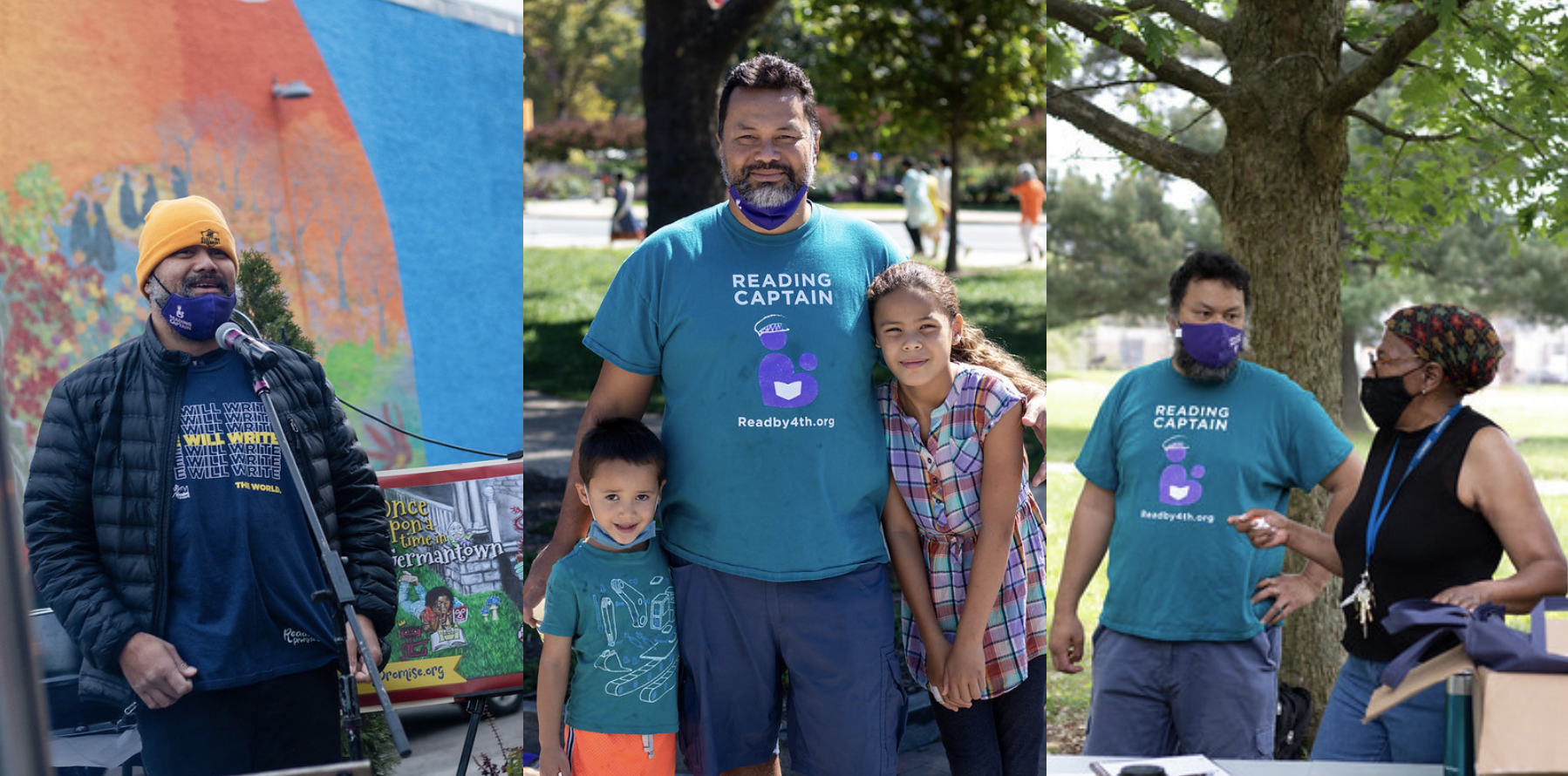Gary King’s parting words to Reading Captains are inspiring literacy advocates citywide
Interview by Jules Galette, Global Citizen
As some of you might already know, Northwest Reading Captain facilitator and Mt. Airy CDC’s Literacy & Schools Coordinator, Gary King, will be taking a year away from Philadelphia to share his home, American Samoa, with his family.
While we're going to miss Gary's leadership, creativity, and tireless energy, we couldn't pass up one more chance to pick his brain before he's off to the Pacific.
Below are a set of questions we asked Gary about his time as a Reading Captain Facilitator. We hope you find them insightful and instructive.
What attracted you to become a Reading Captain?
As someone who's played a support role in education for all of my career in the nonprofit world, Reading Captains was from the git-go a compelling and interesting way to address the cloud problem of the achievement gap through the narrow frame of early literacy. Being a facilitator was simply an extension of that, a chance to be a part of a team and collaborate and organize our way over the long haul towards better, healthier outcomes for the families and kids who need our help the most.
Too much of our policies and discourse in this country, and in the broader culture, revolve around individual-level root causes, aka "bootstraps' ' and "personal responsibility" narratives that aren't actually backed up by the data or history.
Reading Captains is one important brick in the larger wall of mutual aid and structural/systemic change that has the potential to be a scalable and transformational policy framework that hopefully, one day, can hit a critical mass and change the conversation away from pinning "blame" on single individuals or groups of people.
Every regional group has its personality and style of work—how would you describe the Northwest Reading Captains’?
Quiet Doers. Northwest Reading Captains are "quiet doers." Constantly out there organizing and activating public spaces and programming on their own, often without anyone knowing or looking, never looking for credit.
How has being a Reading Captain changed the way you think about your own children’s literacy?
It's reinforced for me how complex often simple outcomes (eg. reading a book or being ABLE to read a book) are rooted in a much broader and deeper array of inputs than we initially think.
Anything and everything we see over the course of a single day, or even by the hour or minute, is the result of a long list of things, moments, people, actions, events, and material conditions that are complex, overlapping, and multifaceted.
By the time a child arrives in PreK or Kindergarten, their capacity to read, act, pay attention, and engage is largely already predetermined to a degree. It's dependent on infinite hidden variables that aren't observable at the point of contact in that classroom or daycare. That distinction matters and has huge implications for how we should be approaching this work and what matters and what doesn't.
What are you going to miss most about Philadelphia?
Well, to be clear, I am coming back. For the time I am away, I will miss the food, my people in my village here in Mt Airy, and the northwest. I'll miss my cofacilitators obviously, and checking in with my northwest Reading Captains family at regional meetings, tabling events BUT especially, the in-between, private moments: the phone calls, visits that no one else sees when someone just reaches out for support or to say hi.
I'll miss Philadelphia's underdog, never-give-up, ride-or-die spirit. Ride or die is definitely a cultural norm for me as a Pacific Islander, and I've always loved that about Philly. Once you're in, you're in. You're family, and we got your back.
In your time with the Readings Captains initiative, is there a specific moment that sticks out to you?
I think being on a call with someone at a regional meeting who opens up and has the courage to share that they've lost someone close to them in their life, a husband, wife, or even a child. Those moments remind me that we're all in this together, we're all family, we're all people just trying to figure things out in real-time as they get thrown at us on the daily, as life often wants to do.
If you could only pass one message on to your fellow Reading Captains, what would it be?
What you do matters, in every way.
Every little step or action or thought— all of it contributes in some unknowable way to good that you won't necessarily get to witness later on. But it's important that we remember as we clumsily move through this movement building and life in general, that we're on the right path. Disagreements, drama, mistakes—all of that is part and parcel of the process.
Don't let imperfection be the enemy of the good. Keep going.
Wow. What a legacy!
Want to learn more about Philly’s Reading Captains and how you can get involved? Click below.

